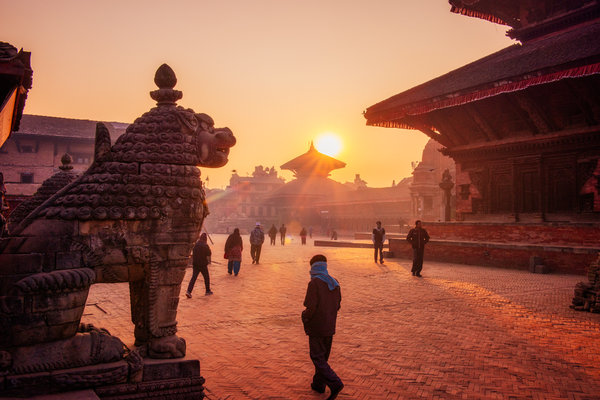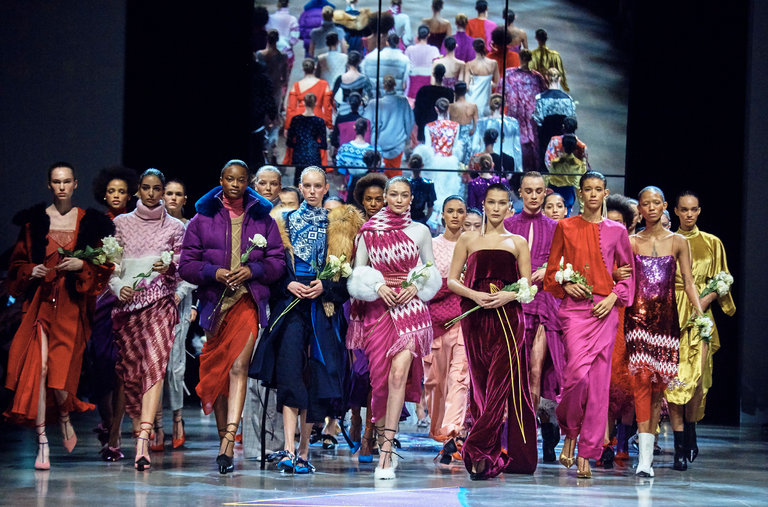Prabal Gurung, a New York-based fashion designer, was born in Singapore and raised in Nepal. He has also lived in India — both Delhi and Bombay — London and Australia. A life spent traveling to the far reaches of the globe has influenced not only his brand’s philosophy but its aesthetics as well.
Mr. Gurung’s politics are woven into the fabric of his label. He consistently considers diversity when casting the models who appear in his fashion shows, in advertising campaigns and on his website. And though his luxury women’s wear is a red-carpet favorite, he has also collaborated on a collection with Lane Bryant, a plus-size retailer.
He makes statements with the clothes he sells, producing T-shirts emblazoned with phrases like “I am an immigrant,” “Girls just want to have fundamental rights,” and “We will not be silenced.” And he has been outspoken in what he sees as the need for the fashion industry to take sexual assault more seriously.
In 2011, Mr. Gurung, 39, and his siblings started the Shikshya Foundation Nepal, which financially supports the efforts of local organizations providing education to underserved children.
Ahead of Fashion Week in New York City this month, Mr. Gurung talked by telephone about his philosophy. The following is an edited version of the conversation. IMAN STEVENSON
How much time do you spend in New York versus traveling?
I’d say 60/40.
How do you manage your internal clock when you travel?
I’ve abandoned the idea. Wherever I land I start to function. Sometimes I get weekends off, so I rest. Where I go I immediately follow that city’s clock. The first thing I do is I try to swim if I’m in a hotel and there’s a pool. Or work out for an hour or two.
How does travel impact your creative process?
It really opens my eyes. Though I’ve traveled extensively to different parts of the world, I’ve always been a curious traveler. When you’re culturally open and empathetic, you start to look at not just fashion, but the world differently. If I were to just stay in America, I’d probably have boundaries about what is acceptable.
How often do you visit your home country of Nepal?
Definitely once a year. Sometimes it can be twice a year. I stay there for a week to 10 days. I work on my foundation I have there. Then I can be with my family. Oftentimes I’ll go trekking.



How did you decide to use the embroidery of Nepalese artisans in your Spring 2019 collection?
We were inspired by the Tharu tribe in Nepal. Whenever I’m drawing from a tribe or a group, I like to make sure we are honoring them in the right way. Part of that is trying to generate some kind of employment. When I went to Nepal there was this organization which works with these artisans, it’s all sustainable and fair practice. So I was talking to them and we found these women who do that kind of work from that particular tribe and I decided to work with them. When things are done in hand-done embroidery, there is so much love put into it. I think the world can do with more of that.
Why do you make political statements with your brand?
From day one, I’ve been about celebrating and empowering women, especially because I come from a single mother who brought us up. I, myself, am an immigrant. I came here to study, I got my work visa, then green card, then finally became a citizen. What I’m living is the American dream. From the collection that we do, to the casting that we do, we talk about the heritage of the models. I’m interested in and intrigued by their background, by their ethnicity, their experience.
Is there a country or city you never get tired of visiting?
Just one, I can’t give you. I’ll give you Nepal, India, Tokyo, Seoul, Paris and London.
Do you have a go-to plane outfit?
I always change on the plane. We have this cashmere travel set that we do. We got it made in Nepal. A cashmere crew neck and cashmere sweatpants, so I change into that.
Do you connect to the plane’s Wi-Fi or use that time to unplug?
Some people dread long flights. I kind of enjoy it because it gives me time on my own, for myself. It’s not even about movies. I don’t connect on the Internet, I just disconnect. That’s why sometimes 13-hour flights are really good because you get there, settle in, change, eat, read a book, sleep, wake up and be with your thoughts. It’s just the most calming place for me.
Do you check your luggage or carry on?
Depends. If there are a lot of formal events, I have to check it. I’m going to Tokyo for six days and it’s work and stuff, so most likely I won’t check it. If I’m taking gifts for my friends and family then I have to check it.
Follow NY Times Travel on Twitter, Instagram and Facebook. Get weekly updates from our Travel Dispatch newsletter, with tips on traveling smarter, destination coverage and photos from all over the world.







